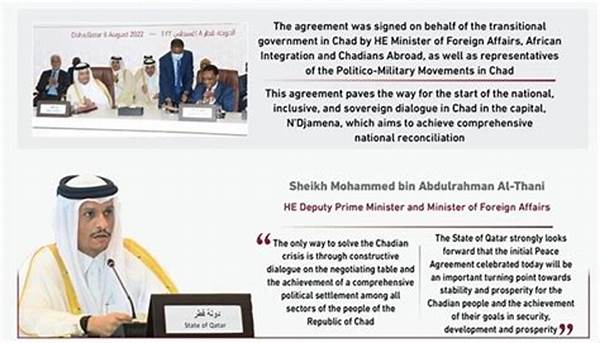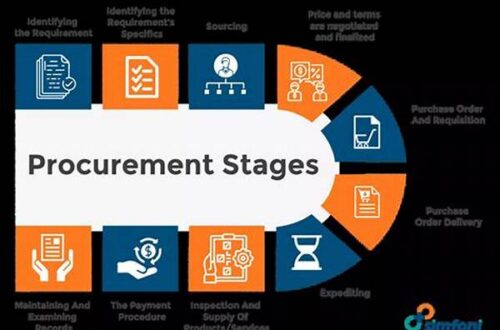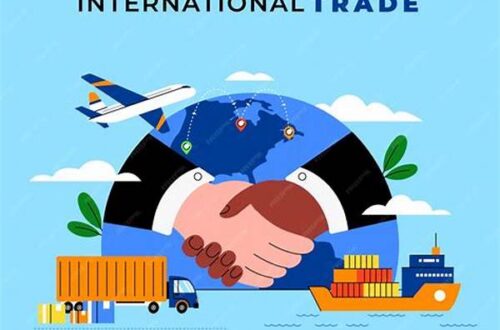The complexity of global conflicts has necessitated a strategic approach in the resolution processes employed by nations and international organizations. Mediation, a prominent technique, has gained substantial attention due to its effectiveness in addressing the root causes of conflicts and fostering durable peace. This article aims to explore the mediation efforts in global conflicts, reflecting on their significance, challenges, and the outcomes that contribute to worldwide stability.
The Role of Mediation in Conflict Resolution
Mediation efforts in global conflicts play a crucial role by providing a platform where conflicting parties can engage in dialogue, negotiation, and compromise. These efforts are often spearheaded by neutral parties, such as international organizations, countries uninvolved in the conflict, or distinguished diplomats. The aim is to bridge differences, understand grievances, and chart a pathway to peace that respects the interests of all stakeholders involved. Such initiatives are fundamental in conflicts where direct negotiations have stalled, and the need for an impartial facilitator becomes critical. By offering a space for constructive dialogue, mediation often helps de-escalate tensions and paves the way for lasting peace agreements, thereby preventing further human and economic costs associated with prolonged disputes.
One of the primary successes of mediation efforts in global conflicts lies in their ability to incorporate diverse perspectives and expert insights into the dialogue process. This inclusivity ensures that peace agreements are recognized, binding, and adaptable to the dynamics of the conflict environment. Furthermore, mediators assist in securing the commitment of combatants to implement peace accords, even in the face of skeptical international audiences. Despite these advantages, the success rate of mediation can be affected by factors such as asymmetrical power relations between conflicting parties, the complexity and multi-dimensionality of modern conflicts, and resistance to compromise from involved actors. Nevertheless, mediation remains a vital instrument of peacebuilding with the potential to turn adversaries into negotiators of mutual objectives.
Advantages and Challenges of Mediation
1. Effective Dialogue Facilitation: Mediation efforts in global conflicts facilitate dialogue between disputing parties, promoting mutual understanding and building trust.
2. Neutrality and Impartiality: The involvement of neutral third-party mediators ensures fair handling and resolution of conflicts, promoting unbiased outcomes.
3. Saves Lives and Resources: Skilful mediation can considerably reduce the human and financial costs usually associated with warfare and prolonged disputes.
4. Long-term Peace Building: Successful mediation initiatives contribute to establishing durable peace by addressing the fundamental causes of conflict.
5. Resistance from Parties: One significant challenge is the occasional resistance or lack of commitment from the conflicting parties to engage constructively in mediation.
Historical Case Studies of Mediation
Throughout modern history, mediation efforts in global conflicts have demonstrated varying degrees of success. For example, the Camp David Accords between Egypt and Israel, facilitated by U.S. President Jimmy Carter, underscore the impact of effective mediation. This high-profile mediation resulted in Egypt recognizing Israel as a state, and Israel returning the Sinai Peninsula to Egypt, marking a watershed moment in Middle Eastern diplomacy. Another notable instance is the Oslo Accords between the Palestine Liberation Organization and Israel, with mediation efforts incorporating multilateral stakeholders. Despite subsequent setbacks, the agreements reached illustrated the potential of mediation to instigate political dialogues necessary for peace.
Contemporary conflicts, such as those in Africa’s Great Lakes region, remain focal points for mediation due to their intricate intergovernmental dimensions and ethnic tensions. The African Union and regional bodies have undertaken mediation initiatives to halt violence and encourage political stabilization. Nevertheless, mediation efforts in global conflicts continue to face obstacles like lack of enforcement mechanisms and fluctuating party commitments. Assessing these cases reveals key insights into best practices and areas needing reinforcement to enhance the efficacy of mediation across diverse geopolitical landscapes.
The Future of Mediation Efforts
The evolving nature of mediation efforts in global conflicts emphasizes the need for adaptability and resilience among mediators. Emerging mediators must embrace cultural sensitivities, technological advancements, and multidisciplinary approaches in their peacebuilding missions. Incorporating digital tools in diplomacy has facilitated the swift gathering and analysis of data, enhancing the strategic planning capacities of mediators. Furthermore, training programs centered on conflict resolution are crucial for empowering future diplomats and peacebuilders equipped to tackle complex crises.
Going forward, the emphasis must also be placed on developing robust frameworks for accountability that compel parties to adhere to mediated agreements. Efforts to bolster public support and community engagement in peace processes can greatly contribute to the sustainable resolution of global conflicts. Additionally, fostering collaborations between state and non-state actors can transform mediation from a reactive measure to a preemptive strategy in conflict prevention. By advancing the principles of transparency, responsiveness, and justice, future mediation endeavors have the potential to secure a stable and peaceful international order.
Lessons Learned from Mediation
1. Objectives and Compromise: Mediation efforts in global conflicts underscore the importance of clarity in objectives and willingness to compromise by involved entities.
2. Power Dynamics: Addressing imbalances in power relations is critical to achieving equitable peace agreements.
3. Cultural Competence: Understanding cultural contexts and histories enhances the credibility of mediation processes.
4. Multilateral Cooperation: Successful mediation often requires collaboration among international bodies, civil society, and local actors.
5. Communication Strategies: Effective communication and transparency are vital in securing trust and cooperation from disputing parties.
6. Post-mediation Support: Ensuring continued support for post-conflict reconstruction is imperative for long-term stability.
7. Innovation in Mediation: Embracing innovative approaches and technologies can increase the effectiveness of conflict resolution initiatives.
8. Prevention Focus: Prioritizing conflict prevention can mitigate escalation and reduce the need for prolonged mediation.
9. Flexibility and Resilience: Mediators must be adaptable and capable of navigating shifting geopolitical landscapes.
10. Inclusive Frameworks: Creating frameworks that include marginalized groups fosters more comprehensive solutions.
The Impact on Global Peace
The significance of mediation efforts in global conflicts cannot be overstated in the broader context of international peace and security. By providing structured platforms for dialogue and negotiation, these efforts raise hope for ending long-standing disputes that have incapacitated nations and stunted development efforts worldwide. Successful mediations emphasize the principles of mutual respect, justice, and equality, while offering tangible pathways to reconciliation. As international actors continue to prioritize peaceful resolutions, the relationship between diplomacy and mediation becomes pivotal in preventing future conflicts.
Nonetheless, the ever-changing political landscape demands that stakeholders continuously assess and enhance their approaches, ensuring that mediation keeps pace with emerging challenges. The commitment of the global community to uphold international laws and support mediation initiatives will determine the progress achieved in settling disputes across continents. As a vital tool in the arsenal of conflict resolution, mediation remains instrumental in cultivating a harmonious and collaborative international society, reflecting the collective aspirations for peace and stability.
Conclusion
In conclusion, mediation efforts in global conflicts represent a critical component of modern peacebuilding initiatives. The ability of mediators to promote constructive dialogue and foster reconciliation significantly contributes to reducing the occurrence and impact of global conflicts. While challenges persist, including political resistance and complex power dynamics, the potential for mediation to transform adversarial relationships and promote durable peace is undeniable. The future success of these efforts relies on the international community’s dedication to advancing innovative, inclusive, and culturally informed strategies that align with the principles of fairness and justice.
It remains imperative to enhance both preventive measures and post-conflict recovery plans, ensuring that mediation efforts are not merely temporary solutions but integral components of sustainable peace processes. By addressing the root causes of conflicts, fostering engagement from all stakeholders, and learning from past experiences, mediators can continue to make meaningful contributions to global harmony. As history portrays, and as contemporary efforts indicate, mediation holds the promise of nurturing a world where differences are settled at the negotiation table, rather than on the battlefield.





